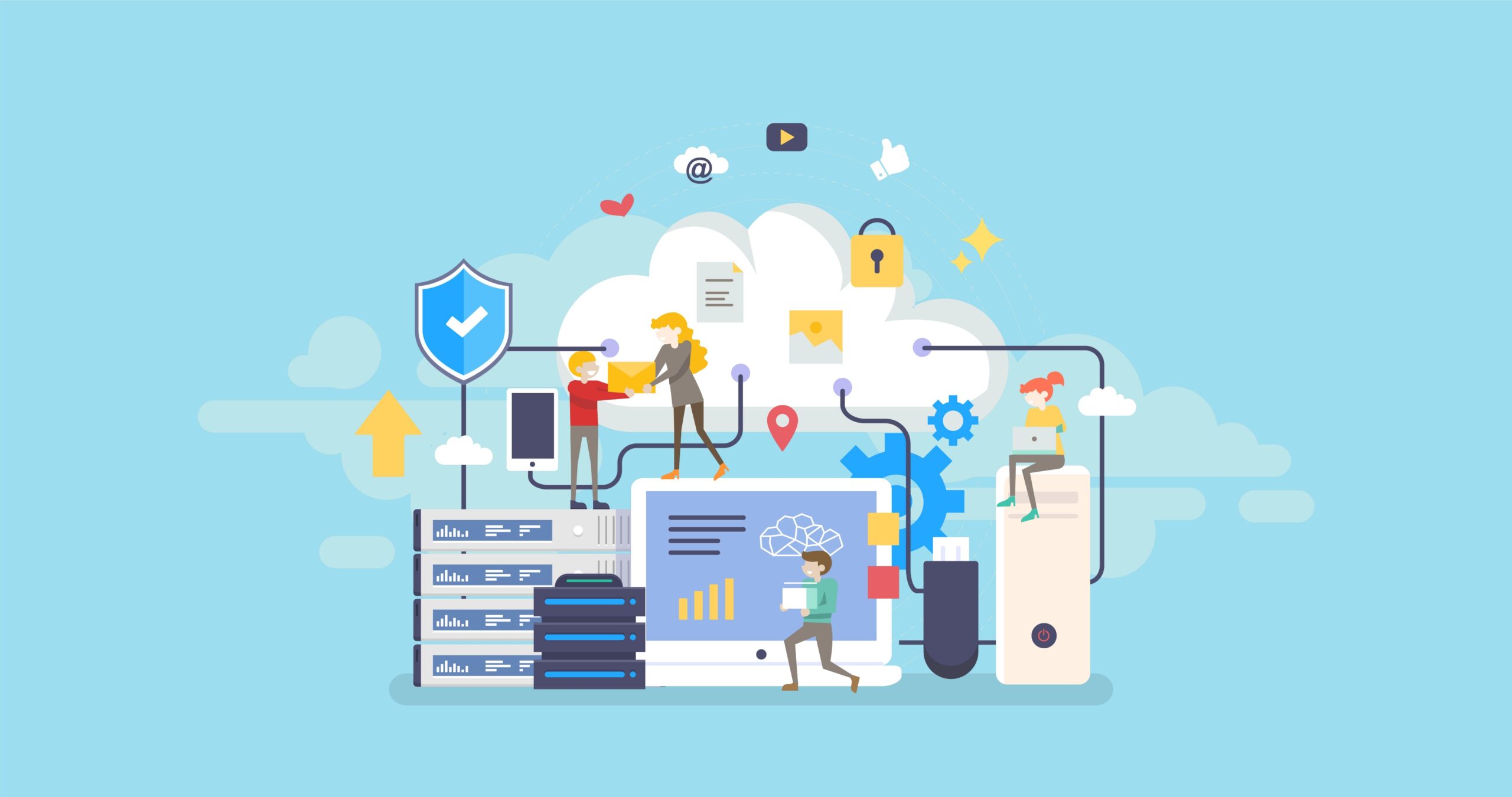The growth of the Internet of Things or IoT devices continues at an accelerated pace each year. According to estimates by the IDC, the number of IoT-enabled devices will be close to 42 billion by 2025, which will generate nearly 80 zettabytes of data.
At the current unprecedented growth, IoT adopters are looking at innovative means to store the huge volumes of generated data. Simultaneously, the growth of cloud computing technology in recent years is providing a viable solution for big data generated through IoT app development and deployment. Cloud-based storage enables IoT adopters to leverage the full value and potential of data from their IoT systems and devices.
Here is looking at 5 benefits of using cloud computing as a storage solution for IoT data.
Benefit 1 – Scalability
Among the biggest advantages that cloud systems offer is scalability for your IoT infrastructure. No longer is there any need to invest into large-scale networks and storage systems for all the generated data. With increasing data volumes, all you need is to lease more cloud storage or server space.
Moreover, cloud storage systems also offer better flexibility if you want to scale down your connected devices and storage spaces.
Benefit 2 – Security
When it comes to data, every business wants it to be safe – be it in on-premises solutions or cloud-enabled platforms. As a result of this factor, many companies prefer to store their big data on secure cloud platforms such as Microsoft Azure or Amazon Web Services (or AWS). For example, the AWS Shield service from Amazon secures all applications running on the AWS platform from DDoS attacks.
With the current emphasis on data security, the same concern extends even to IoT app development and enablement teams. Recent industry trends show clients preferring cloud premises, as compared to on-premises infrastructure, for storing and processing their data. This is mainly driven by the fact that cloud solution providers apply regular security updates and monitor the IoT data 24/7.
Benefit 3 – Cost-Effective
Implementing an effective IoT data solution in any business environment can be discouraging if it involves huge initial investments and implementation costs. This is where cloud computing services make IoT-related investments much more cost-effective and feasible for most enterprises.
Cloud solutions reduce the overall cost on multiple fronts, including hardware costs and maintenance, IT personnel costs, and business costs caused due to data failures or server downtime. Add to that, flexible pricing schemes based on actual data usage can encourage IoT adopters to switch to the cloud storage model.
Besides the cost factor, IoT cloud solutions also take lesser time to design and implement; thus reducing the overall project cost. This works great for IoT solutions where a quick “time to market” is a critical requirement.
Benefit 4 – Data Integration
Since the emergence of Big Data, enterprises have been striving to collect and integrate data from multiple sources, leading to better decision making. This mostly included customer and sales-related data stored in ERP, CRM, and other data sources.
IoT devices have only added to the list and complexity of data integration. This is because traditional data from in-house enterprise systems are characteristically different from data collected from the latest IoT sensors and connectors.
How does cloud computing help in data integration? Thanks to its ability to store large volumes of data from multiple sources, cloud platforms can store data from enterprise systems and IoT devices, thus allowing seamless integration and aggregation of data from disparate systems.
Benefit 5 – Data Accessibility
Data stored on cloud premises can be accessed from any device and from any part of the globe. Business data on the cloud is not restricted by any software or network constraints. When it is a matter of monitoring IoT devices, real-time accessibility is essential from any location.
Apart from easy accessibility, you can use analytics tools to perform real-time analytics of the data retrieved from IoT connected devices. For example, Azure Stream Analytics provides real-time analytics on IoT data.
Plus, thanks to the ability of cloud-powered solutions to store massive volumes of generated data from IoT and enterprise systems, business executives can generate accurate data insights that are more real-time and provide higher visibility into various business functions.
Conclusion
Considering the current and projected proliferation of IoT devices, cloud computing platforms are the best option for storing and analysing large volumes of data. To leverage maximum value from their IoT investments, business enterprises must consider moving from their traditional data storage system to the more scalable and cost-effective cloud infrastructure. As compared to the past, companies can now look towards cloud solutions for better data security and reliability.







